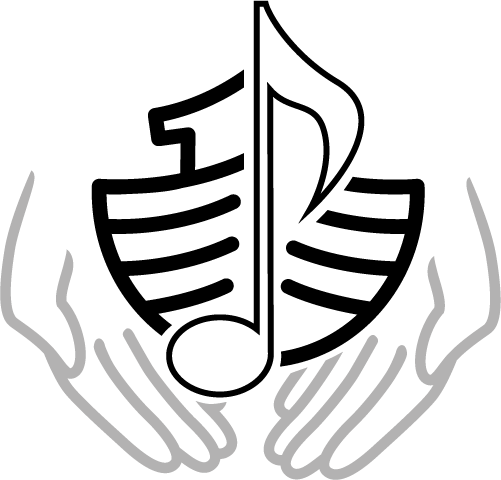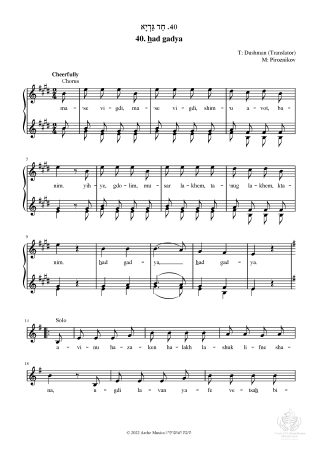חד גדיא | Had gadya | One Kid
Artist: Abraham Zvi Idelsohn (1882-1938)
This cumulative song is traditionally sung on Passover eve. It is written in Aramaic, and in many Jewish communities it is still sung in Aramaic. The text is also known in many languages.
“Had gadya” has been part of the Passover Haggadah (book read during the festive meal of Passover) since 1590. Similar songs can be found in several European folk cultures. One of these popular ballads is “Der Bauer Schickt den Jokel aus” (The Master who Sends the Worker Out), which has a similar structure.
The text of this version was translated from the Yiddish by Yisrael Dushman, who published the song in the Hebrew anthology Kinor Katan [Small Violin] (Warsaw, 1901). The Yiddish text, along with this melody, was published in Yitzhak Piroznikov's Haggadah (Vilna, 1901). Piroznikov might be the composer of this melody as well.
Idelsohn included five verses to be performed by solo and choir. The choir opens the song with an introductory text; next, five verses are sung by the soloist, with the choir repeating the first verse after each new verse, thus creating a verse-refrain structure.
The song relates the following sequence of events: father buys a kid in the market; a cat eats the kid; a dog gets angry and kills the cat; a stick gets angry and hits the dog; a fire burns the stick; water puts out the fire; an ox comes and drinks up the water; a butcher comes and slaughters the ox; and the Angel of Death comes and kills the butcher. The song ends with God intervening and burning the Angel of Death.
The text of this song was published in Ha-Zamir (Odessa, 1903: p. 35), and the melody was published in Ta'ame Zimra le Shire Ha-Zamir [Singing Notes to the Songs of 'Ha-Zamir'] (Warsaw, 1904: p. 42), with only the surname of the composer, Bernstein.
“Shir ha-ro'e” features a shepherd who calls his flock to follow him to the open fields. The melody is in a major key.
Included in
Scores
Original (PDF) Modernized (PDF)

